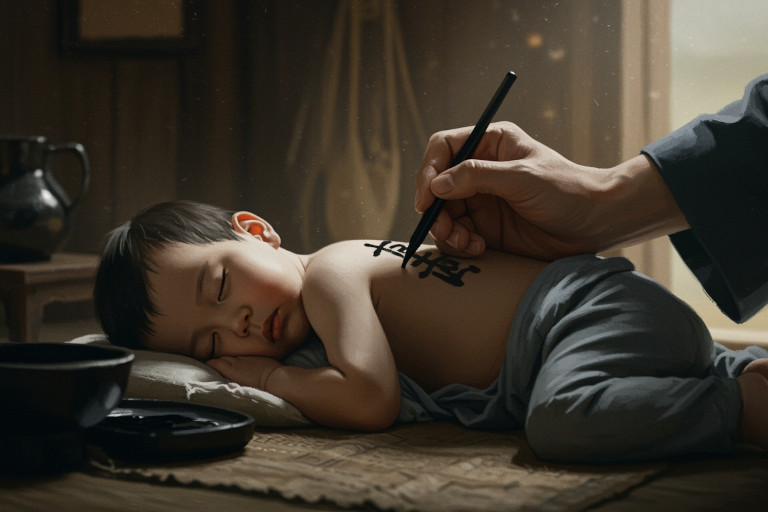In Chinese history, numerous classical texts document the concept of reincarnation — the idea that while the physical body may die, the spirit lives on. These accounts weren’t written merely for entertainment — they served as reminders to live virtuously, avoid wrongdoing, and cherish moral conduct. Among such records are two fascinating cases from the Gengsi Bian, a collection of strange tales compiled by Ming Dynasty scholar Lu Can, who lived in what is now Suzhou, Jiangsu.
Both stories revolve around reincarnation and offer striking insight into how attachments, karma, and spiritual continuity were viewed in traditional Chinese belief.
A dog guarding buried silver
Lu Can’s father once shared a strange tale with him — one that had been passed down through the family. In the western part of Suzhou, a shopkeeper owned a large and fierce dog that often lay by the doorstep. Anyone who approached too carelessly risked being bitten, so the family always warned visitors to keep their distance.

One day, a merchant unfamiliar with the situation visited the shop. As he stepped toward the entrance, the dog lunged and bit him on the thigh, causing a severe injury. Furious and bleeding, the merchant scolded the shop owner, who apologized profusely. The owner had never been fond of the dog and, feeling guilty, promised to kill it the next day, inviting the merchant to return and eat the meat as a form of appeasement.
That night, at his inn, the merchant had a vivid dream. In it, an old man appeared and said: “I am the father of the shop owner. I died many years ago. Before I passed, I secretly buried several hundred taels of silver beneath the threshold of the shop, but I died before I could tell my son. Because of my deep attachment to the money, I was reborn as this dog, guarding both the door and the silver. I bit you today, but it wasn’t my intention. Now my son plans to kill me and cook me. Please, I beg you — tell him not to do it.”
The merchant awoke at once and hurried back to the shop. When he asked about the dog, the shop owner said: “It’s already been slaughtered. The meat is nearly ready.” Distressed, the merchant told him about the dream. The owner was skeptical, brushing it off as a dream brought on by the trauma of the bite. But the merchant proposed they dig beneath the threshold to see for themselves.
Reluctantly, the owner agreed. When they removed the stones and dug into the ground, they uncovered a clay jar filled with over 400 taels of silver. Shocked and remorseful, the shopkeeper realized the truth of the dream — that the dog had indeed been his father, reborn and bound by regret. He held a proper burial for the dog’s remains.
A child’s reincarnation with his name intact
In another case from rural Suzhou during the Ming Dynasty, a man surnamed Guo had a son named “Guan Shou.” Sadly, the boy died young. Devastated, Guo and his wife followed a local custom: they wrote the name “Guan Shou” in ink on their child’s back before burial. According to folk belief, such a mark might carry over into the next life, making it easier to recognize the child if he were to return.

A year later, the couple had another son. To their astonishment, the newborn had the characters “Guan Shou” clearly marked on his back. The writing looked just as it had the year before. People said it must be the same soul, reborn into the same family — an enduring bond between parents and child that transcended death.
What these stories suggest about life after death
These accounts are not mere curiosities from the past — they carry moral weight and invite us to reflect on the consequences of our thoughts and actions. In the first story, the man’s intense attachment to wealth bound him to the silver he had hoarded, resulting in his rebirth as a dog charged with guarding it. It’s a powerful illustration of how unchecked desires can shape one’s fate in unexpected ways.
In the second tale, the child’s return — complete with the written mark from his past life — points to a kind of spiritual continuity that even modern researchers into reincarnation have noticed. Some have observed that birthmarks and scars can carry over from one life to the next.
Together, these stories suggest that our actions, attachments, and thoughts may follow us beyond this life. While our possessions and status disappear after death, our moral choices may continue to shape what comes next. As the old saying goes: when we are born, we come empty-handed; when we die, nothing material follows us — only our karma remains.
Translated by Joseph Wu
Follow us on X, Facebook, or Pinterest

